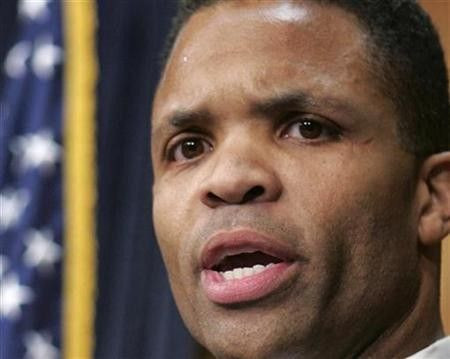Jesse Jackson Jr.'s Resignation Means New Election For South Chicago's Residents

Jesse Jackson Jr. might have resigned from Congress due to ongoing treatment for bipolar disorder, but the federal probe into alleged misuse of campaign funds clearly had something to do with his decision, which comes only two weeks after he was re-elected as the representative for Illinois’ 2nd congressional district.
The resignation leaves a House seat vacant, and the timing of the resignation leaves the district's constituents the Thanksgiving break to ponder what Chicagoland politics will do to fill the vacancy just two weeks after Jackson’s re-election. Jackson's ensuing resignation reportedly will cost the public treasury $5.1 million. Now, a special primary and general election must not only be held, but it must be scheduled by Gov. Pat Quinn by next week and held within 115 days, according to FOX32 News.
In response to the resignation, which was also his first public acknowledgement that he was being investigated, Jackson’s attorneys said their client was cooperating with authorities.
"The government doesn't like people who are going to plead guilty to abusing public office to remain in a position of public trust,” Bruce Reinhart, a federal prosecutor for 19 years, told the Associated Press. “Resignation would be a significant bargaining chip for Congressman Jackson in order to get a better deal from the government."
In his resignation letter to House Speaker John Boehner, which was submitted Wednesday as Congress was shutting down for the Thanksgiving Holiday, the 47-year-old son of civil rights activist and former presidential candidate Jesse Jackson cited his ongoing treatment for bipolar disorder as the reason for his resignation. He also said he had made “mistakes.”
“I am aware of the ongoing federal investigation into my activities, and I am doing my best to address the situation responsibly, cooperate with my investigators, and accept responsibility for my mistakes, for they are my mistakes and mine alone,” Jackson wrote in his letter.
Jackson’s resignation means that the House Ethics Committee, which was investigating his relationship to imprisoned former Gov. Rod Blagojevich, who is serving 14 years on corruption charges, could still issue a report of its findings. It will have no power to punish Jackson if it recommends that course of action because he is no longer a member of the House, but the report could be used against him if it alleges or illustrates any improprieties with Blagojevich. The allegation is that Jackson was positioning himself to take the Senate seat vacated by now-President Barack Obama.
Jackson has been absent from the public eye for much of the past year. In July, his office announced he was being treated for “for depression and gastrointestinal issues.”
U.S. Rep. Bobby Rush, a representative of a nearby Illinois district, told CNN he thought Jackson waited until after the election to resign in order to give his constituency a chance to pick his successor instead of a small number of connected Chicago elites choosing “one of their lackeys to be the congressman."
Indeed, Jackson’s core South Chicago Seventh Ward supporters were instrumental in getting him re-elected.
Who will replace Jackson? Some residents of the district were skeptical the vacancy would be dealt with in a transparent, evenhanded fashion.
"We don't have much of a say in this gerrymandered district," Dick Johnson, an 85-year-old resident, told the Chicago Tribune, and he said he was happy to see Jackson step down. "It's pretty well decided for us up in Chicago."
© Copyright IBTimes 2025. All rights reserved.






















